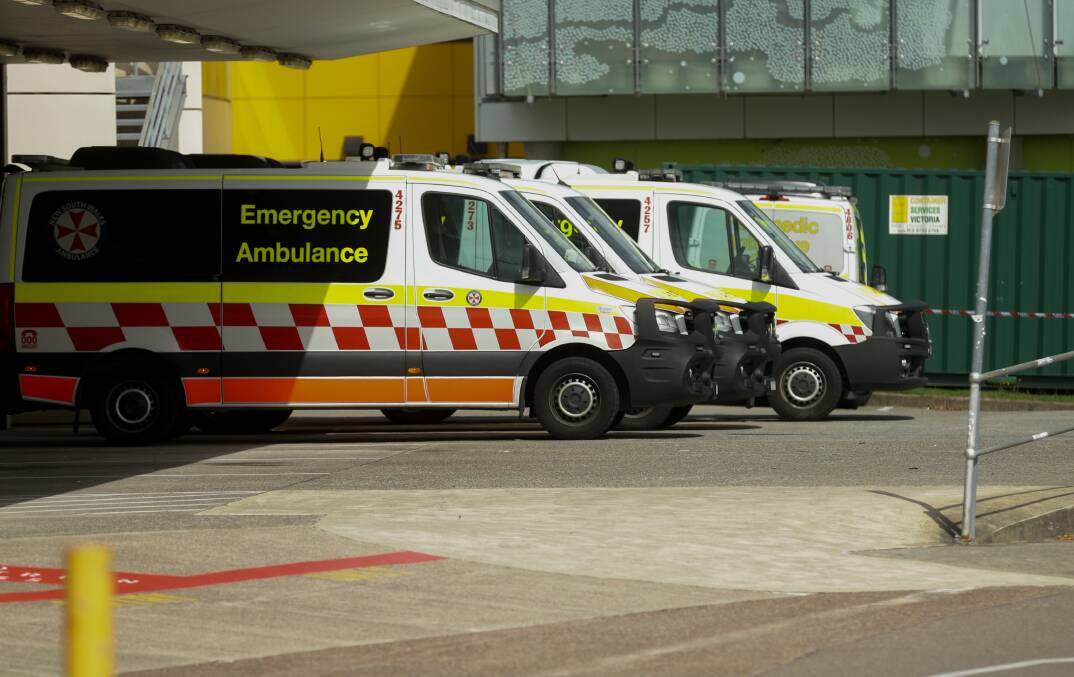
A 69-year-old woman who waited more than seven hours for an ambulance died 10 minutes after being admitted to Belmont Hospital.
The Toronto woman was experiencing severe abdominal pain in the early hours of April 29, but despite four separate calls to Triple Zero throughout that day, paramedics did not arrive until 6.45pm.
Margaret (last name withheld to respect her family's wishes) was taken to Belmont Hospital.
Her friend, Neil Ellis, said she died 10 minutes after she was admitted.
Mr Ellis said he first called an ambulance on Margaret's behalf at 11.20am that day.
He told the Newcastle Herald if he'd have known how long it would take for the ambulance to arrive, he would have tried to get her to hospital sooner himself.
"She had been moaning and groaning earlier that morning, and she said she was in a lot of pain," Mr Ellis said. "She came out a couple of times later that morning, and she was shaking and trembling.
"She'd have a few sips of water, and juice, then she'd go back to bed. I said, 'I think I better ring an ambulance Marg', because she'd been in hospital about a month before with septicaemia."
When he asked her where she was feeling pain, she kept pointing to the right side of her stomach.
"I thought it might've been appendicitis," he said.
Mr Ellis said he rang Triple Zero four times throughout the day. Once at 11.20am, then at around 12.45pm, and again at 2pm.
The last time Mr Ellis called Triple Zero, he was told the next available ambulance would arrive. But he said another hour-and-a-half passed before paramedics arrived.
"They just kept saying they were busier than normal," he said. "But she was getting worse. She said, 'I think I'm dying'.
"After first ringing at 11.20am, they turned up at quarter to seven.
"By that time, she wasn't talking. She'd quietened right down.
"They hurried her out of there fairly quickly once they saw her."
Mr Ellis said Margaret was taken to Belmont Hospital. He said he was later told she had died 10 minutes after being admitted, at around 7.45pm.
"It was absolutely disgraceful," he said.
"It was a terrible experience for her, and for me as well."
Mr Ellis said it had not yet been confirmed what had caused Margaret's death, but there were some suspicions it could have been related to her previous septicaemia.
He said he knows the ambulance delay was not the attending paramedics' fault, but he did not want this traumatic experience to happen to anyone else.
Swansea MP Yasmin Catley said it was an incredibly sad, tragic and traumatic end to somebody's life, and it highlighted a stressed and strained health system.
She said the experience had been very distressing for Margaret's family and friends.
"No-one should have to lose a loved one in this way," she said. "They want answers as to how this was allowed to occur and action taken so that other families do not have to endure such events.
"It distresses me that residents from the Swansea electorate are dying while waiting to get the medical assistance they so desperately need."
She said she had written to the Health Minister Brad Hazzard, and that NSW Ambulance service would be providing his office with a report into what had happened.
Ambulance ramping and bed block at the region's hospitals may be keeping paramedics off the road.
"These people made four Triple Zero calls, and still waited more than seven hours for an ambulance to arrive... There just doesn't seem to be enough ambulances on the ground," Ms Catley said.
Australian Paramedics Association (NSW) president Chris Kastelan said delayed response times were the result of chronic under-resourcing in the Hunter, and more broadly around NSW.
"When there's not enough paramedics, and not enough capacity within the healthcare system, response times blow out because the service simply cannot meet demand," he said. "Delayed responses unnecessarily elevate stress and trauma for the patient, their family, and the paramedics who eventually get dispatched to respond. It's heartbreaking for any paramedic to respond to a patient who has been left waiting. We've been fighting hard for better resourcing to improve service for our communities."
He called for the government to commit to 1500 extra staff, more paramedic specialists, and improved referral networks to help relieve pressure.
A NSW Ambulance spokesperson said the service extended its sincere condolences to the family, acknowledged the distress this experience had caused.
"A review of the incident is being undertaken," he said.
"The findings, and any recommendations will be provided to the family at the conclusion of the review process."







